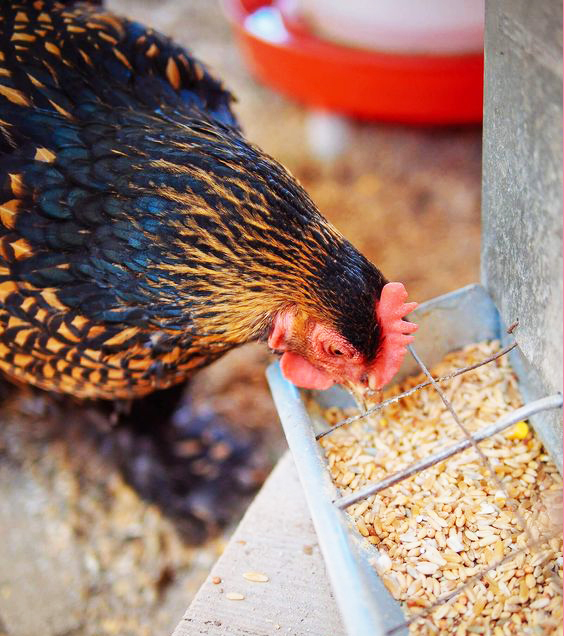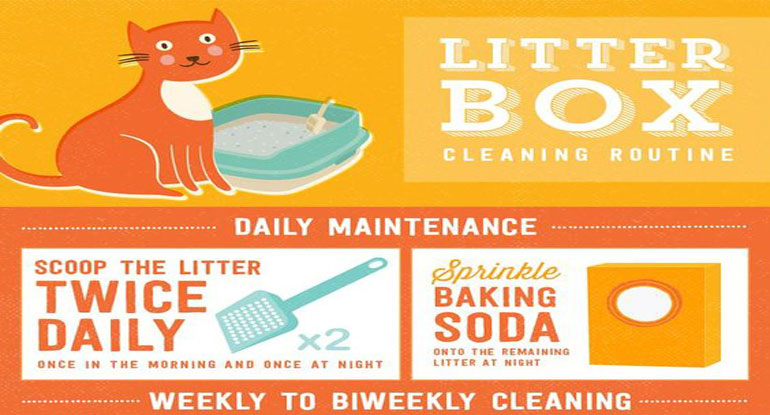
Summary:
This article provides a beginner's guide on how to make chicken feed at home. It covers the basics of choosing the right ingredients, mixing and storing the feed, and ensuring your chickens receive a balanced diet. Tips and tricks for saving money on feed costs are also included.
If you're a backyard chicken owner, one of the most important aspects of their care is ensuring they receive proper nutrition. Chickens require a balanced diet that consists of protein, carbohydrates, and essential nutrients to maintain their health and produce quality eggs. One of the best ways to ensure your chickens are getting the right nutrition is by making their feeds at home. In this article, we will discuss how to make feeds for chickens at home.
Determine the Nutritional Requirements of Your Chickens
Before you start making chicken feed, you need to know the nutritional requirements of your birds. The nutrient requirements will vary based on the age, breed, and purpose of your chickens. For example, layers need more protein and calcium than broilers. It's important to research the nutritional requirements of your chickens or consult a veterinarian to determine the right balance of nutrients for their needs.
When it comes to making feeds for chickens, the first step is to determine their nutritional requirements. Chickens require a balanced diet that contains the necessary nutrients to support their growth, egg production, and overall health.
One of the key components of a chicken's diet is protein. Chickens require high-quality sources of protein to support their growth and egg production. Good sources of protein for chickens include soybean meal, fish meal, and meat and bone meal.
In addition to protein, chickens also require a variety of vitamins and minerals to maintain good health. Calcium is an especially important nutrient for chickens, as it is required for strong eggshells. You can provide calcium to your chickens by adding oyster shells or crushed eggshells to their feed.
Another important consideration when making feeds for chickens is their age and stage of development. Young chicks require a diet that is higher in protein than adult chickens, as they are still growing and developing. Layers, or chickens that are used for egg production, require a diet that is specifically formulated to support their egg-laying needs.
It's also important to consider the quality of the ingredients you use when making feeds for chickens. Make sure to use fresh, high-quality ingredients, and store them in a cool, dry place to prevent spoilage.
Overall, making feeds for chickens can be a cost-effective and rewarding way to ensure that your birds are getting the nutrition they need. By determining their nutritional requirements and using high-quality ingredients, you can create a diet that supports their growth, egg production, and overall health.
Choose Your Ingredients
Once you have determined the nutritional requirements of your chickens, it's time to choose your ingredients. Chicken feed is typically made up of a combination of grains, protein sources, and supplements. Common grains used in chicken feed include corn, wheat, oats, and barley. Protein sources can include soybean meal, fish meal, or dried insects. Supplements can include calcium, vitamins, and minerals.
Choosing the right ingredients is essential when making feed for your chickens. Different ingredients have varying nutritional values, and it's important to select a combination that meets the specific needs of your birds. Here are some tips for choosing the best ingredients for your homemade chicken feed:
Protein Sources: Chickens require a good source of protein for growth, egg production, and overall health. Some common protein sources include soybeans, fish meal, and dried insects. Soybean meal is a popular choice for many chicken owners because it's readily available and relatively affordable.
Grains: Grains are an important source of energy for chickens, and they can make up a significant portion of their diet. Some common grains used in chicken feed include corn, wheat, and barley. However, it's important to avoid feeding chickens too much corn, as it can cause digestive problems.
Vitamins and Minerals: Chickens require a variety of vitamins and minerals to maintain good health. Some common sources of vitamins and minerals include oyster shells, bone meal, and vitamin supplements. Be sure to include these ingredients in your feed to ensure that your birds are getting all the nutrients they need.
Fats and Oils: Fats and oils provide a good source of energy and can also help to make your feed more palatable. Some good sources of fats and oils for chicken feed include vegetable oil and fish oil.
Avoid Toxins: It's important to avoid using any ingredients that could be toxic to your chickens. For example, you should never use moldy or spoiled feed, as it can make your birds sick. You should also avoid using any plants or substances that are known to be toxic to chickens, such as avocado or chocolate.
Calculate the Amount of Feed Required
Before you start mixing your ingredients, you need to calculate the amount of feed required. This will depend on the number of chickens you have, their age, and their nutritional needs. A good rule of thumb is to provide about 1/4 to 1/3 pound of feed per chicken per day.
Providing your chickens with the proper amount of feed is crucial to their health and well-being. Feeding your chickens the right amount of feed will ensure that they are getting the necessary nutrients to thrive and produce quality eggs or meat.
To determine the amount of feed required for your chickens, there are several factors to consider. These include the age, breed, size, and activity level of your chickens. In this article, we will discuss how to calculate the amount of feed required for your chickens based on these factors.
Age The nutritional requirements of your chickens will vary depending on their age. Chicks will require a starter feed for the first six weeks of their lives, which is high in protein and essential nutrients to support growth and development. After six weeks, chicks can be switched to a grower feed, which has slightly lower protein levels but still provides the necessary nutrients for healthy growth. Adult chickens will require a layer feed, which has a lower protein content and contains calcium for eggshell production.
Breed Different breeds of chickens have different nutritional requirements. For example, breeds that are known for their egg-laying abilities will require a feed that is higher in protein to support their egg production. Meat breeds, on the other hand, will require a feed that is higher in fat to support their muscle development.
Size The size of your chickens will also impact their nutritional needs. Larger chickens will require more feed than smaller chickens. However, be careful not to overfeed your chickens, as this can lead to obesity and health problems.
Activity Level The activity level of your chickens will also impact their nutritional needs. Chickens that are more active and spend more time free-ranging will require more feed to support their energy needs.
To calculate the amount of feed required for your chickens, you will need to consider these factors and make adjustments accordingly. A good rule of thumb is to provide your chickens with about 1/4 to 1/3 pound of feed per bird per day. However, this amount may vary depending on the factors mentioned above.
It is important to monitor your chickens' weight and adjust their feed accordingly. If your chickens are becoming overweight, reduce the amount of feed provided. If they are losing weight, increase the amount of feed provided.
Mix Your Ingredients
Mixing the right ingredients is a crucial aspect of making chicken feed. It ensures that the feed meets the nutritional needs of your chickens and helps them to thrive. Here are some tips for mixing your ingredients properly:
Use a Recipe: Before mixing your ingredients, it's important to have a recipe. The recipe should be based on the nutritional needs of your chickens, their age, and the purpose for which you are raising them. Recipes can be found online, in books, or you can consult with an expert in poultry nutrition.
Measure Accurately: When measuring your ingredients, be sure to do so accurately. Even small variations in the amount of each ingredient can affect the nutritional value of the feed. Use measuring cups and spoons, and if possible, a digital scale for more precise measurements.
Mix Thoroughly: To ensure that all the ingredients are evenly distributed, mix them thoroughly. You can use a large container or a cement mixer to do this. Mixing by hand can be time-consuming, but it is a viable option if you have a small flock.
Add Nutritional Supplements: In addition to the basic ingredients, you may want to add supplements to your feed. These can include vitamins, minerals, and probiotics. Be sure to follow the instructions on the package when adding supplements to your feed.
Test the Quality: After mixing your ingredients, it's important to test the quality of the feed. This can be done by sending a sample to a feed laboratory or by observing the health and behavior of your chickens. If your chickens are not thriving or if they have health issues, it may be necessary to adjust the ingredients in your feed.
Mixing your own chicken feed can be a cost-effective way to provide your chickens with a nutritious diet. By following these tips, you can ensure that your chickens are getting the nutrients they need to be healthy and productive.
Store Your Feed Properly
Once your feed is mixed, it's important to store it properly to maintain its freshness and nutritional value. Store your chicken feed in a cool, dry place, preferably in an airtight container. This will prevent moisture and pests from spoiling your feed. Use your feed within a few weeks of mixing to ensure it stays fresh.
Storing chicken feed properly is just as important as creating the right mix. Proper storage helps to ensure that the feed remains fresh and free from pests, as well as prevents spoilage and mold growth. Here are some tips on how to store your feed properly:
Choose a cool, dry, and well-ventilated storage area: Storing feed in a damp or humid location can cause mold and bacterial growth. Make sure to store your feed in a location that is cool, dry, and has good air circulation. A basement, garage, or shed can be ideal.
Use airtight containers: Air and moisture are the two biggest enemies of stored feed. Using airtight containers can help to prevent these elements from getting in and spoiling the feed. Metal or plastic trash cans with tight-fitting lids are good options. You can also use plastic storage containers with snap-on lids.
Keep feed off the ground: If your feed is stored on the ground, it can attract moisture and pests. Consider storing your feed on shelving units or raised platforms to keep it off the ground.
Rotate your feed: Feed that is stored for too long can become stale and lose its nutritional value. Rotate your feed supply regularly so that the oldest feed is used first.
Keep feed away from pests: Pests such as mice, rats, and insects can be attracted to stored feed. Use traps or baits to keep pests away, and make sure to keep your storage area clean and free of debris.
Give it a go, here is the link to best Pet & Chicken feed Ingredients Manna Pro Discounts
Related Post
Subscribe to our weekly newsletter!
Get coupons from your favorite retailers sent to your inbox at the beginning of every week.
You can cancel anytime.






Comment
leave comment